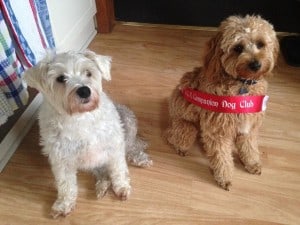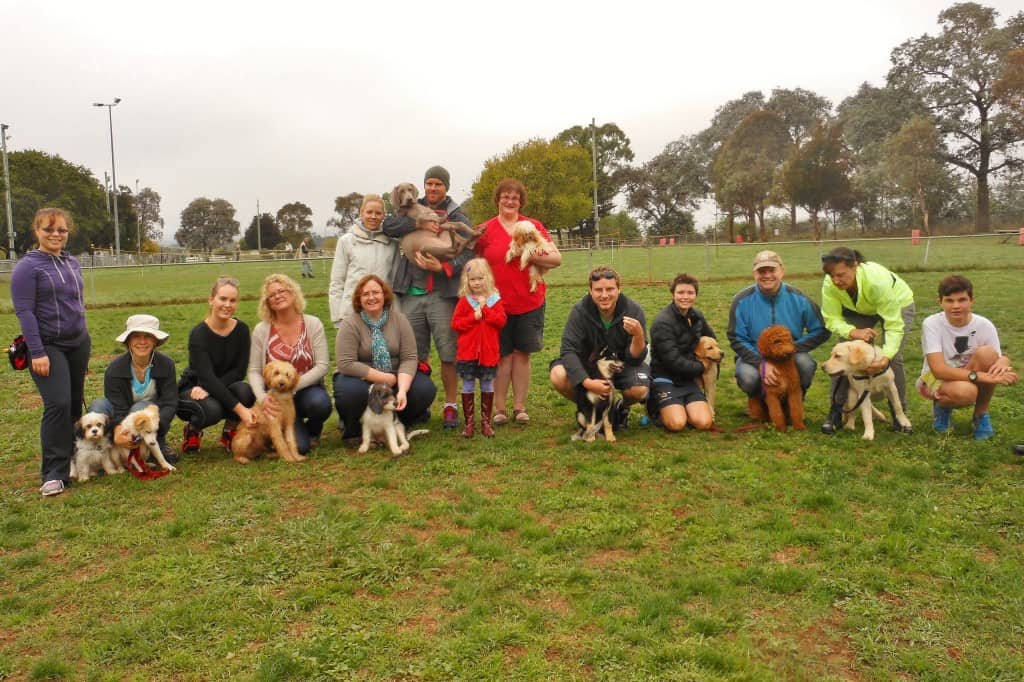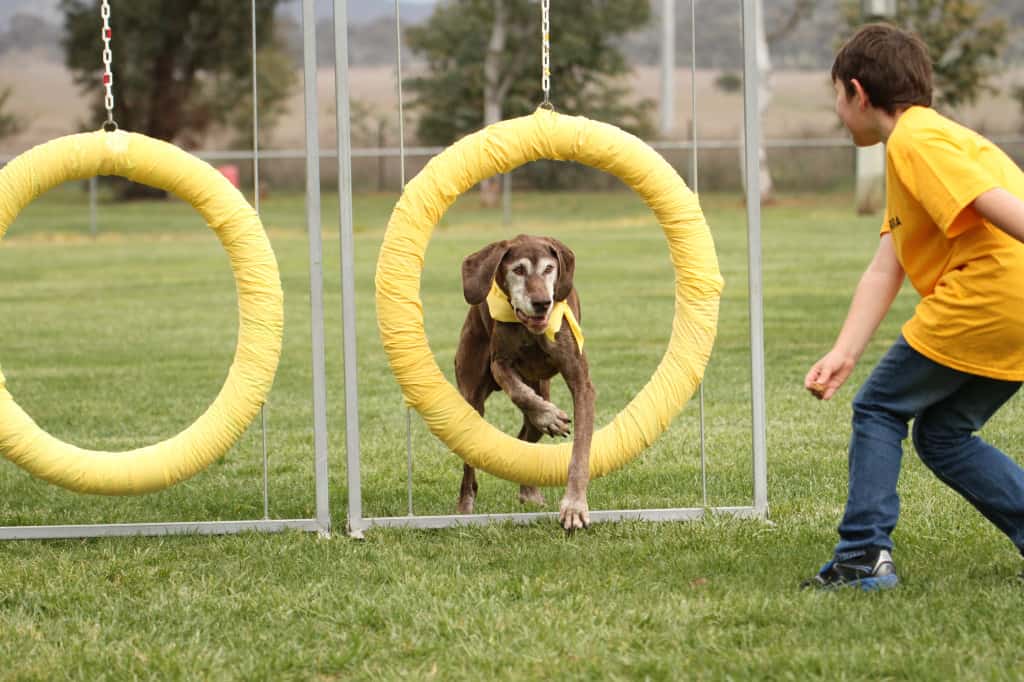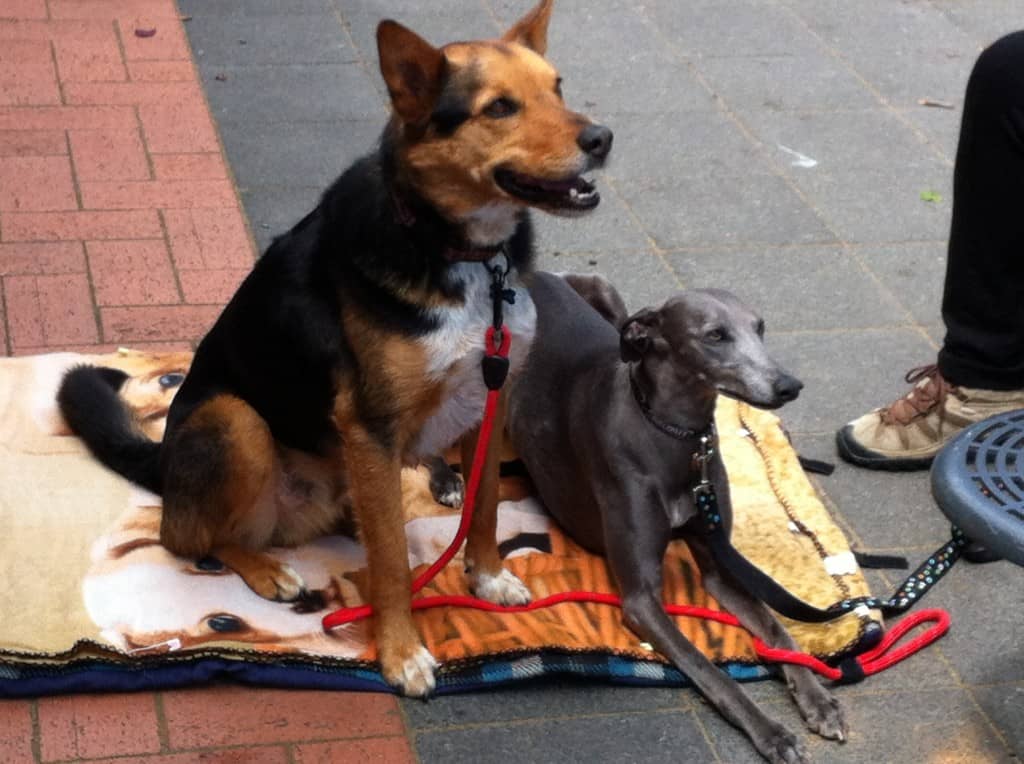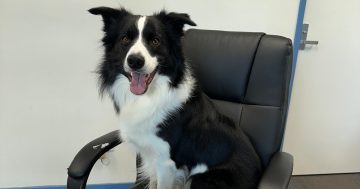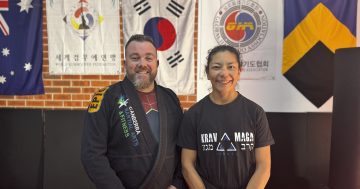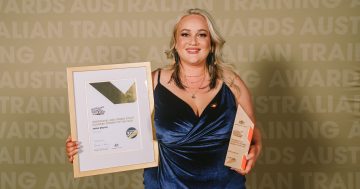You’ve all seen it. Dogs ignoring their owners when called. Dogs taking their owners for a ‘drag’. Dogs jumping up and knocking over kids. Dogs lunging and barking at other dogs. Basically – dogs completely out of control!
People love dogs and dogs love people, but unruly and unsocialised dogs are a menace in an urban environment. How do you make sure your cute puppy grows into a happy, well-mannered family member, or transform your older, delinquent dog into the perfect Canberra canine citizen? Where can you go for help?
Fortunately in Canberra we have three fantastic community-based organisations that can help – the ACT Companion Dog Club, the Belconnen Dog Obedience Club and the Tuggeranong Dog Training Club. These excellent, not-for-profit, volunteer organisations aim to help people produce dogs that are great companions and great Canberra citizens.
We recommend all three clubs as the first port of call for help with training puppies and older dogs. They all offer a wide range of obedience and ‘sport’ activities in a supportive and positive environment.
The ACT Companion Dog Club (ACTCDC) is typical of what you can expect. ACTCDC is the original Canberra dog training club – helping owners train their dogs since 1958!
We can’t say enough good things about this club or recommend it too highly. I learned to train my first dog, a German Shepherd-cross, at ACTCDC when I was only 15-years-old. Thirty years later they helped me train our first whippet, and now I’m a member again with our second whippet. All my family have been members of the club over many years with their various dogs – both purebred and mixed-breed rescue dogs.
I spoke to current ACTCDC president, Linda Spinaze, recently about the classes and activities offered.
“The most popular classes teach basic good manners. We help you understand dog behaviour and teach you how to train your dog to be a well-behaved companion,” said Linda.
“We focus on practical skills, for example, walking on lead without pulling, to come when called, and to sit, drop and stand. You’ll also learn how to teach your dog to socialise appropriately with other dogs and people, to sit quietly for pats – and to wait patiently for dinner!”
Training is through positive reinforcement. “This means rewarding behaviour you want as the main teaching tool, rather than using punishment,” Linda explained. “Dogs respond really well to rewards-based training. They want to please you! And this approach makes training fun for everyone.”
“It doesn’t matter what your level of experience, what breed of dog you have or its temperament. Our instructors – all volunteers – will be able to help. We’ve seen it all!”
ACTCDC has around 800 members at any one time, with around 80 new members joining at the beginning of each new ‘training term’ to participate in the ‘kindi’ and ‘beginners’ classes.
People join the club for all sorts of reasons. I spoke to a range of members at a recent training day and here’s what they said:
I want my dog to be a good companion – to be safe and pleasant to take out on a walk where ever we go.
I never thought it was important to train my dog, but now he’s 70 kilos and only 6 months old! He needs to walk on lead without pulling, and to be safe around my friend’s kids.
I come here with my kids as well so they learn how to handle our dog safely, and we all learn to use the same cues.
My dog gets over-excited whenever she sees another dog. Coming to these classes helps get her used to lots of other dogs and teaches me how to cope as well.
I breed a particular breed of dog that is independent and difficult to control. I bring all my dogs to training here and encourage everyone who buys my puppies to bring them as well.
I just love learning how to communicate better with my dog – it makes our bond stronger, and she’s happier and safer.
Linda says that most people join the club to learn basic dog skills. But members can continue with their dogs to higher training levels or get involved in sports activities, such as flyball, agility, tracking, rally-o or dancing-with-dogs.
Any type of dog can excel at any of these classes – it’s not just about super-bright German Shepherds, Border Collies and Kelpies. Go along to any of the club’s activities and you’ll see tiny terriers tearing around the agility course and miniature poodles scoring highest in formal obedience competitions.
Around 100 instructors volunteer their time to conduct classes. Instructors go through rigorous training themselves, completing 25 hours of course work plus practical workshops.
“Most instructors start in the club training their own dogs, then they ‘catch the bug’ wanting to help others,” said Linda. “I started in the club nearly twenty years ago learning to train my own dog before getting more involved as an instructor, then a committee member.”
“We’ve had instructors as young as 15, as well as over 70-years-old. You just have to have a passion for dogs and people.”
The ACTCDC runs regular dog training classes on Wednesday mornings, Thursday evenings and Sunday mornings at its grounds in Narrabundah Lane (cnr Jerrabomberra Avenue), Symonston. Other sports-based classes are held on other week nights and Sunday afternoons. See its website and newsletter for more information.
Depending where you live, the Belconnen Dog Obedience Club and the Tuggeranong Dog Training Club may be more convenient and offer equally valuable assistance.
The RSPCA also offers some puppy and dog training classes focusing on socialisation and basic training.
A small number of professional dog trainers advertise online. This option may be useful if you need one-on-one assistance with an older dog that has entrenched behavioural problems. Look for a trainer who uses motivational methods or ask the ACTCDC for a referral.
For more advice from Canberra locals about owning dogs in Canberra, including the best dog friendly cafes, dog parks and dog friendly accommodation, go to Canberra Dog Walks’ Dog Blog.



